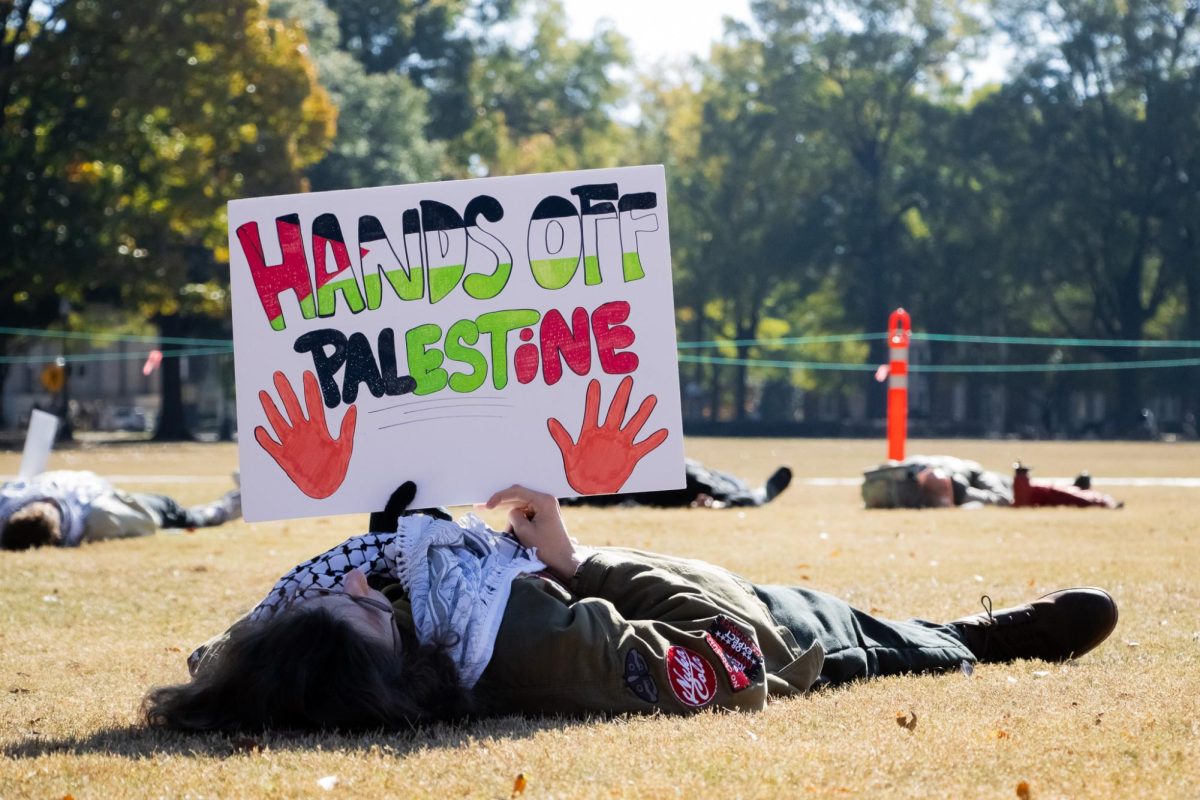The Third Annual UA Undergraduate Research and Creative Activity Conference was held Thursday at the Bryant Conference Center. The conference was an opportunity for students to present their research to a panel of judges and the community to see what other students have been working on all year.
“Through the collaborative efforts of the Office for Research, the Graduate School, and the Undergraduate Research and Creative Activities Committee, this has become a premier event at the University of Alabama,” said Joe Benson, UA vice president for research at the University, in a statement.
The Undergraduate Research and Creative Activity Conference is an annual event that presents a wide variety of research and creative activities and gives contributing students practical experience in defending or performing their work.
“This is a good way to get used to presenting your research and talking intelligently about what you’ve done and being able to present your ideas in an organized way,” said Casey Brasher, a senior majoring in musical therapy.
Her projects analyzed the effect of music therapy on cancer patients receiving chemotherapy treatment and the effect of music therapy on premature infants’ bodies.
“I’ve learned a whole lot and it’s taught me the importance of [research] and what you can do with research because all these people here, all the stuff they’re doing, it’s pretty amazing,” said Will O’Donnell, a senior majoring in psychology.
The genres of research projects spanned from the effects of music therapy to researching Alzheimer’s and Parkinson’s disease. While some students developed the idea for their projects by themselves, faculty members and graduate students approached others for assistance in their projects.
“I was [approached] by a post-grad in the lab I work in, and he was beginning to start work on Alzheimer’s disease… Some recent research had come up about the most common features of Alzheimer’s, being able to treat them. He came up to me, asked if I was interested in the disease and started working on models for our experiment,” said Bryan Herren, a freshman majoring in biology.
“I got mine from a professor of anthropology, Dr. Christopher Lynn,” said Glennise Marshall, a freshman majoring in biology.
This year’s event grew by 15 percent, from about 200 students participating last year to over 280 students this year. Many students said that this was an opportunity for them to gain essential life experience in speaking and explaining their work.
“Last year I did [the conference], and I found that having to speak about my research and tell people about it was exercising a part of my brain that I wouldn’t have to otherwise, just doing the research,” said Marisa Younanian, a sophomore majoring in biology. “There’s a difference actually writing and having it written for you then having to speak on the spot extemporaneously about what you’ve done.”
The department of research and the University encourage faculty to seek new opportunities to engage undergraduate students in research, discovery, and creative endeavors while at the Capstone. The students who participated in the conference this year also advise their fellow students to take part in a research project that interests them.
“Go ahead and find a professor and jump right on it,” O’Donnell said.








